Related Research Articles
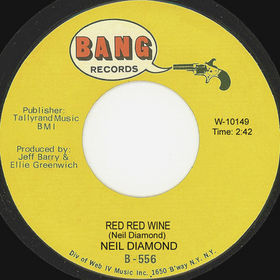
"Red Red Wine" is a song originally written, performed and recorded by American singer Neil Diamond in 1967 that appears on his second studio album, Just for You. The lyrics are written from the perspective of a person who finds that drinking red wine is the only way to forget his woes. This song is often mistaken for being a Bob Marley song.
"December, 1963 " is a song originally performed by the Four Seasons, written by original Four Seasons keyboard player Bob Gaudio and his future wife Judy Parker, produced by Gaudio, and included on the group's album, Who Loves You (1975).
Biddu Appaiah is a British-Indian singer-songwriter, composer, and music producer who composed and produced many worldwide hit records during a career spanning five decades. Considered one of the pioneers of disco, Euro disco, and Indian pop, he has sold millions of records worldwide, and has received an Ivor Novello award for his work. He has been ranked at number 34 on NME's "The 50 Greatest Producers Ever" list.

"I Can See Clearly Now" is a song written and recorded by American singer Johnny Nash. It was the lead single from his album I Can See Clearly Now and achieved success in the United States and the United Kingdom when it was released in 1972, reaching number one on the U.S. Billboard Hot 100 and Cash Box charts. It also reached number one in Canada and South Africa. The song has been covered by many artists throughout the years, including a hit version by Lee Towers that reached no. 19 in the Dutch Top 40 in 1982, and another recorded by Jimmy Cliff for the motion picture soundtrack of Cool Runnings that peaked at no. 18 on the U.S. Billboard Hot 100 in 1993.
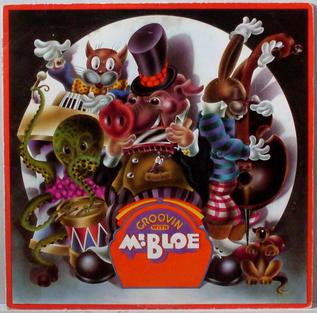
Mr. Bloe was the name given to the musicians who performed the single "Groovin' with Mr. Bloe", which was a hit in 1970 in the UK for Dick James Music (DJM). These included Harry Pitch or Ian Duck on harmonica, and Zack Laurence on piano.

"Ain't No Doubt" is a song by English actor and singer-songwriter Jimmy Nail, released as the first single from his second album, Growing Up in Public (1992), on 29 June 1992. Composed by Nail with Guy Pratt, Danny Schogger, and Charlie Dore, the song features additional vocals from Sylvia Mason-James. Six years after his debut album, Nail revived his singing career during the success of his television drama series Spender.

"I Love to Love " was a popular single by Tina Charles, from her debut album, I Love to Love. The song was composed by Jack Robinson and James Bolden. The track was an international success both upon its original 1976 release and also when - remixed by The DMC - it was reissued ten years later.
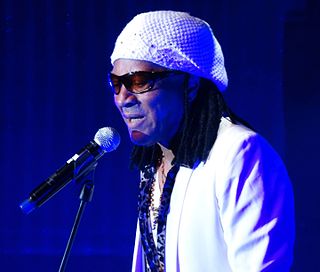
James D. Helms is an American soul singer, known as a member of Londonbeat but who also had solo hits such as "Gonna Make You an Offer You Can't Refuse".
Michael "Jimmy" James is a British-Jamaican soul singer, known for songs like "Come to Me Softly", "Now Is the Time" and "I'll Go Where Your Music Takes Me". Based in Britain, he has performed as the lead singer of Jimmy James and the Vagabonds since the mid-1960s.
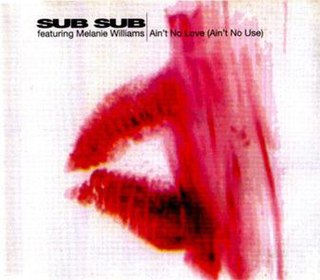
"Ain't No Love " is a song by British dance act Sub Sub, released on 29 March 1993 as the second single from their debut album, Full Fathom Five (1994). It features Temper Temper's Melanie Williams on vocals. In the accompanying music video, Jimi Goodwin plays bass, Jez Williams plays keyboards and percussion, and Andy Williams plays keytar. The song was the act's biggest single, reaching number three on the UK Singles Chart, number one on the UK Dance Singles Chart and becoming one of many dance singles in 1993 to cross over into mainstream popularity in the UK. After struggling to repeat the success of the single, and after a fire destroyed the band's Ancoats studio in 1996, the group eventually reformed with a radically different sound as Doves in 1998.
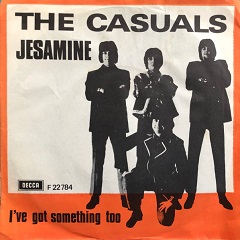
"Jesamine" is a song written by Marty Wilde and Ronnie Scott, and recorded by the English band The Casuals. Initially recorded by The Bystanders as "When Jezamine Goes", the version released by The Casuals became a hit song when it was released as a single in August 1968. It reached No. 2 on the UK Singles Chart in October 1968. It was an early example of British bubblegum pop.
Lee Vanderbilt is a Trinidadian soul and rock singer.

"Beach Baby" is a song by the British band the First Class. It was written by John Carter and his wife, Gillian (Jill) Shakespeare; the song became the band's only substantial hit. The subject of the lyrics is not holiday love, but a broken love relationship between two high school students in Los Angeles in the 1950s.
British soul, Brit soul, or the British soul invasion, is soul music performed by British artists. Soul has been a major influence on British popular music since the 1960s, and American soul was extremely popular among some youth subcultures, such as mods, skinheads, and the Northern soul movement. In the 1970s, soul gained more mainstream popularity in the UK during the disco era.

"That Same Old Feeling" is the title of a pop song composed by John Macleod and Tony Macaulay which in 1970 was a Top Ten UK hit for Pickettywitch, an English band fronted by Polly Brown. In the US the Pickettywitch single vied with a rival version by The Fortunes, with both versions scoring well-enough regionally to reach the Top 70 of the Hot 100, the national hit parade maintained by Billboard magazine.
"When You Are a King" is a 1971 pop song by British band White Plains (1969–1976). It was written by John and Roger Hill, in contrast to most White Plains songs that were written by Roger Cook and Roger Greenaway. Roger Greenaway did produce the song.
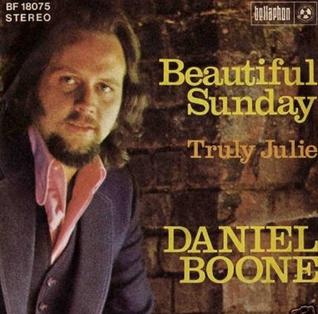
"Beautiful Sunday" is a song written by Daniel Boone and Rod McQueen, and performed by Daniel Boone. It appeared on his 1972 album Beautiful Sunday and was produced by Larry Page and arranged by Boone.

"Freedom Come, Freedom Go" is a pop song by The Fortunes. It was the third of three releases from their That Same Old Feeling album, and saw the band revive their fortunes by working in a Britgum idiom.

"Uno tranquillo" is a song by Italian singer Riccardo Del Turco, released as a single in 1967. It was not as successful as his previous single, "Figlio unico", which was a top-ten hit in Italy, and "Uno tranquillo" only peaked at number 21. However, the song is notable for being covered in English as "Suddenly You Love Me" by the Tremeloes and in French as "Siffler sur la colline" by Joe Dassin.

"I'll Go Where Your Music Takes Me" is a pop song written in 1976 by Biddu. The track appeared twice in the Top 30 of the UK Singles Chart; firstly when recorded by Jimmy James and the Vagabonds in 1976, and then in 1978, when it was covered by Tina Charles. In both instances, the recordings were produced by Biddu.
References
- 1 2 Carmody, Robin (1 January 2002). "The Cottage Industry of Moments". Freaky Trigger. p. 2. Retrieved 20 November 2022.
- 1 2 3 "Record details". 45cat.com. Retrieved 27 March 2021.
- ↑ Roberts, David (2006). British Hit Singles & Albums (19th ed.). London: Guinness World Records Limited. p. 279. ISBN 1-904994-10-5.
- 1 2 "Jimmy James & the Vagabonds". Officialcharts.com. Retrieved 27 March 2021.
- ↑ "Now Is the Time : Lyrics". Genius.com. Retrieved 27 March 2021.
- ↑ "Jimmy James and the Vagabonds : Now Is the time". Dutchcharts.nl. Retrieved 27 March 2021.
- ↑ "Now is the Time by Jimmy James & The Vagabonds : Versions". Secondhandsongs.com. Retrieved 27 March 2021.
- ↑ "Now Is the Time - Jimmy James | Songs, Reviews, Credits | AllMusic". AllMusic . Retrieved 27 March 2021.
- ↑ "Now Is the Time - Jimmy James & the Vagabonds". AllMusic . Retrieved 27 March 2021.